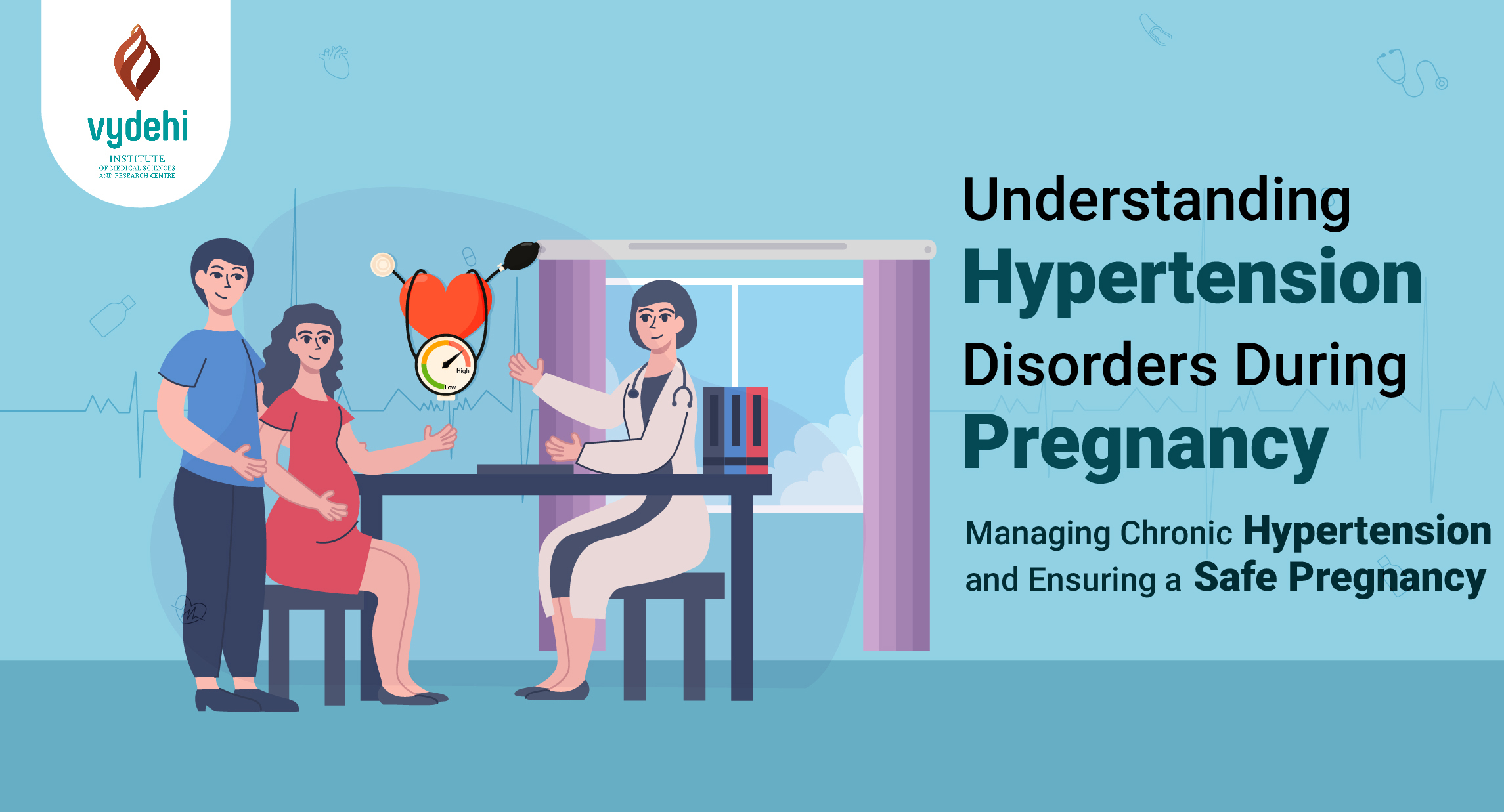

Hypertension during pregnancy is a serious concern that can impact both the mother and the baby’s health. At Vydehi Institute of Medical Sciences and Research Center, we understand the complexities of hypertensive disorders during pregnancy. In this blog, we’ll explore the classification, signs, symptoms, and treatment options for these conditions. Our goal is to provide valuable information for expectant mothers and healthcare professionals.
Hypertensive disorders during pregnancy are classified into four main categories:
Recognizing the signs and symptoms of hypertension disorders during pregnancy is crucial. They may include:
Managing chronic hypertension in pregnancy involves a combination of lifestyle changes and, in some cases, medication. It’s essential for expectant mothers to attend regular prenatal check-ups to monitor blood pressure during pregnancy and ensure a safe pregnancy.
A balanced diet rich in fruits, vegetables, and whole grains can help manage high blood pressure during pregnancy. Reducing sodium intake and staying hydrated are also crucial.
In conclusion, hypertension disorders during pregnancy can be managed effectively with the right medical care and lifestyle adjustments. At Vydehi Institute of Medical Sciences and Research Center, we are committed to providing expert care to ensure a successful pregnancy. Contact us for guidance and support on your journey to motherhood.
The information included here is only for knowledge-sharing purposes, and the blog is not intended to be a substitute for diagnosis, medical advice, or treatment by a healthcare professional. Every individual needs advice based on diagnosis and evidence, hence the reader should consult their doctor to determine the disease and any treatment must be taken under appropriate medical guidance.


 Emergency Number
Emergency Number
An important read for prospective mothers and medical professionals looking to have a safe and healthy pregnancy is this book’s insightful advice on controlling chronic hypertension during pregnancy.
Good information about Hypertension Disorders During Pregnancy
Insightful read on the complexities of hypertension disorders during pregnancy. Knowledge is key to ensuring the health and safety of both the mother and baby.
This article tackles a significant health issue by offering a thorough understanding of hypertension issues during pregnancy. It’s admirable how well the causes and possible consequences are explained. For expectant women and others wishing to learn more about the intricacies of pregnancy-related hypertension, it’s an invaluable resource. Bravo to the writer for illuminating such a significant subject!
What are the signs of hypertension in pregnancy?